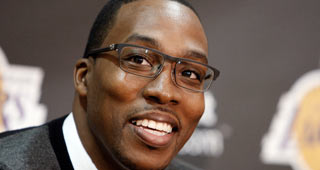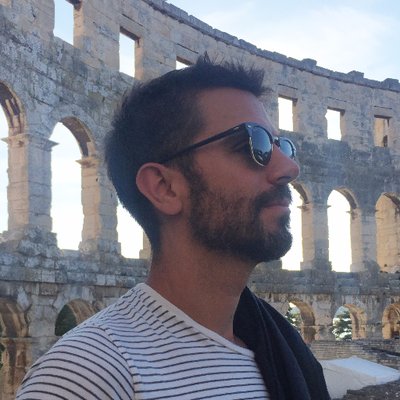If Rob Hennigan was general manager of the Magic in 2004, Dwight Howard would have already have multiple championships.
When Tracy McGrady requested a trade from the Magic after that season, he was dealt to the Rockets in exchange for Steve Francis, Cuttino Mobley and Kelvin Cato. Orlando received no picks in the trade and they began to build around Howard as a mediocre team.
The Magic had the 11th selection in 2005 (Fran Vazquez) and 2006 (J.J. Redick), then traded what would be the 15th overall pick in 2007 for Darko Milicic. Orlando then selected 22nd in 2008 (Courtney Lee) and traded away the 27th pick in 2009.
Contrast that with the Thunder, who had the fourth pick in 2008 (Russell Westbrook) and third pick in 2009 (James Harden) to add to Kevin Durant with the second overall pick in 2007. Sam Presti, Hennigan's mentor, immediately traded away Ray Allen and Rashard Lewis with virtually nothing in return because he was committed to building around Durant over the long-term.
The objective is to be extraordinarily bad for several subsequent seasons, accumulate high drafted prospects, develop that talent and then draft complementary players with the additional picks.
Hennigan comes from the Spurs/Thunder tree and this is the path Orlando will head down over the next three or four seasons.
Trading away Howard should theoretically give the Magic a better return on paper than Arron Afflalo, Nikola Vucevic, Maurice Harkless, Al Harrington, Josh McRoberts, three protected future first rounders and a second rounder, but it is certainly a better trade than Luis Scola, Kevin Martin, Lamar Odom and Goran Dragic (Hornets' original agreed trade of Chris Paul). Afflalo may not be as good as Eric Gordon and the pick that became Austin Rivers (Clippers' trade), but he is a legitimate two-way starter at shooting guard.
The real value in the trade is the stockpile of picks and the ability to be bad. The Magic may not have acquired any player in this deal that will ever play in an All-Star Game, but they are off the mediocrity treadmill and losing 60 games annually over the next two or three seasons, as cynical as it sounds, is the clearest path in finding their next franchise player.
The Rockets' trade offer had better value picks and I would have preferred it, but it is clear that this trade beats Brooklyn's offer centered around Brook Lopez, as well as the aforementioned McGrady deal. It also is better than simply switching out Howard for Andrew Bynum (free agent in 2013) and a 2017 first rounder from the Lakers.
Grade for Magic: B+
There is no downside whatsoever for the Lakers, who have again acquired the best center of his generation.
Bynum is the NBA’s second best center by a wide margin, but Howard is the NBA’s best center by an even wider margin. Howard impacts the game defensively that is difficult to quantify even in our advanced statistics era of basketball. He also gives the Lakers a global star through at least the remaining seven years of the decade, possibly longer when factoring in his age and how big men remain relevant into their mid thirties.
While Howard and the Lakers have a two or three-season window with the current core of Kobe Bryant, Pau Gasol and Steve Nash, it is difficult to envision a supporting cast that immediately better complements Howard. Those three players are supremely gifted offensively and a 70% field goal shooting is within the realm of possibilities for Howard. Howard has become somewhat underrated over the past few months and he will have ample opportunity to prove how good he truly is now that he has been freed from a bad team to join three future Hall of Famers.
The Lakers will have cap room after the 13-14 season when Bryant and Gasol become free agents, which will allow the Lakers to re-sign those two players if they remain productive, or explore their options in free agency.
Howard will not sign a new deal until the summer of 2013, but nobody leaves the Lakers, especially when there is such a heavy financial benefit of remaining.
Grade for Lakers: A
The 76ers and Nuggets cleverly slide into the inevitable Howard to the Lakers trade by acquiring All-Star talents that improve the complexion of their roster.
Philadelphia had what Iguodala brings to the floor in other areas on their depth chart and on more affordable contracts, but they didn’t have an interior presence of Bynum’s quality. A team built around Bynum, Jrue Holiday, Evan Turner and Thaddeus Young is collectively better suited to be a threat in the Eastern Conference than the team that won 53% of their games last season.
Grade for 76ers: A
Iguodala isn’t a superstar talent of Carmelo Anthony’s caliber, but he fits perfectly with the type of team Masai Ujiri has assembled for George Karl’s system. Iguodala becomes Denver’s best player and will immediately excel in running every team in the NBA out of the gym.
The Nuggets have the best overall depth in the NBA, which could mean another three quarters for a dollar bill trade possible to take another step toward competing with the Thunder, Lakers and Spurs in the Western Conference’s upper echelon, especially since they were able to keep the Nene exception.
Grade for Nuggets: A



